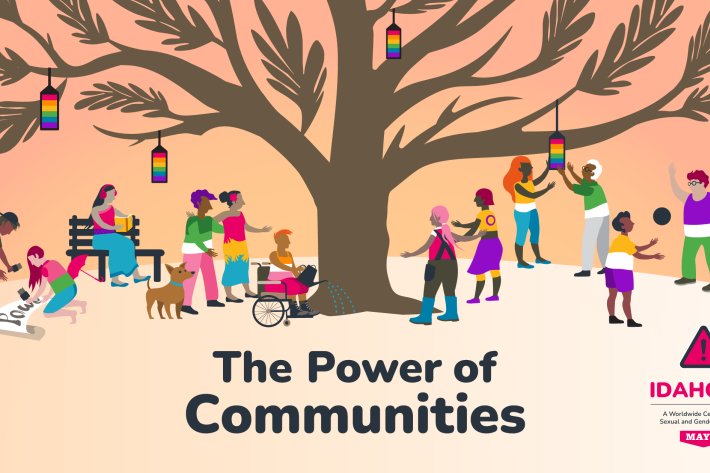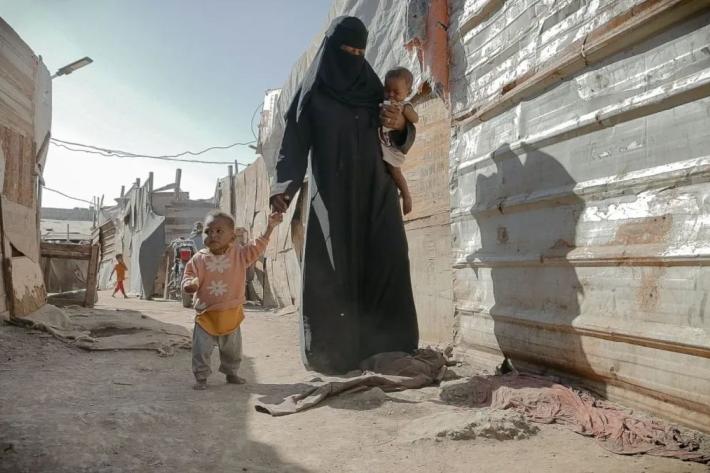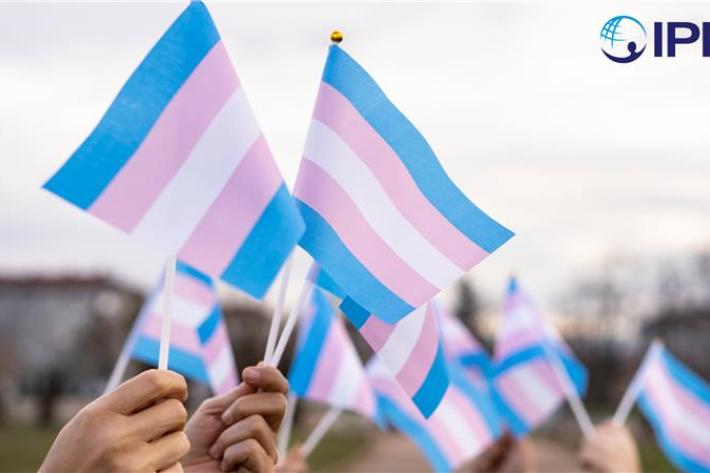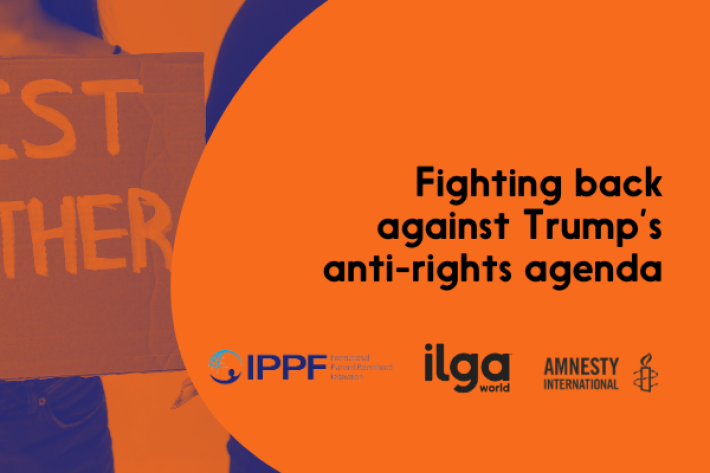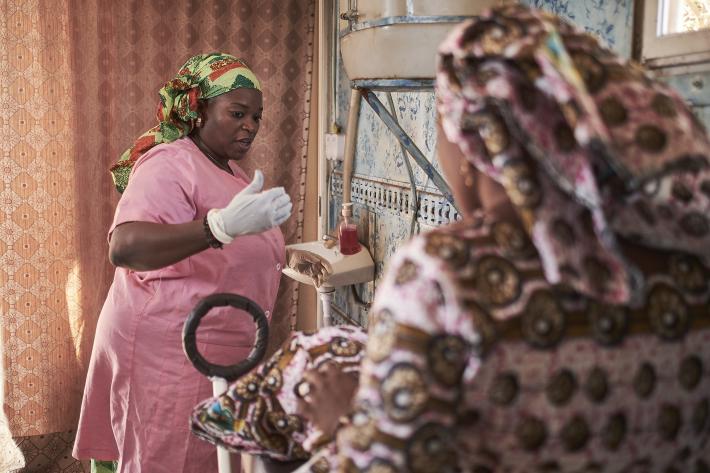
Spotlight
A selection of news from across the Federation

France
From St Nizier to Today: 50 Years of Sex Worker Resistance and Solidarity
Today, exactly 50 years since the St Nizier occupation, IPPF continues to stand in solidarity with sex workers of all genders who stand up and fight for their rights.
Filter our news by:

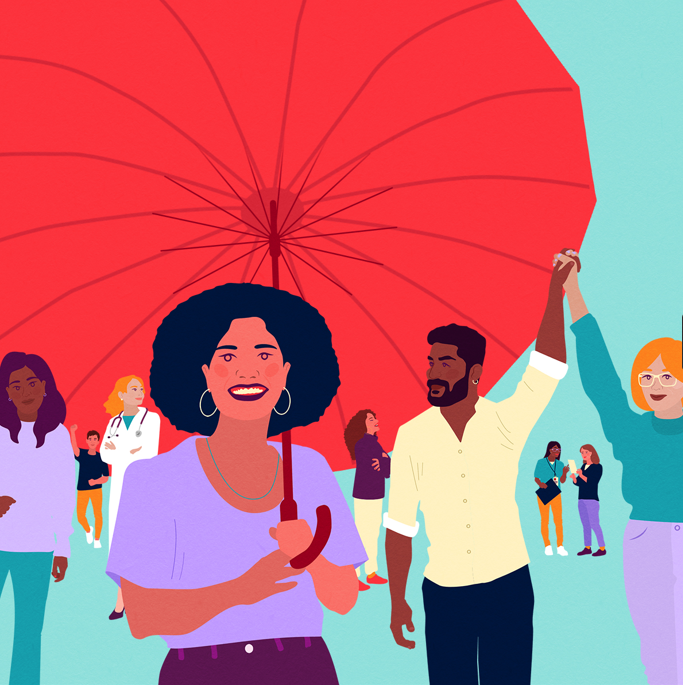
| 26 June 2024
IPPF Statement Reacting to the SR VAWG's Report on Prostitution and Violence Against women and Girls
Stigmatising. Ideologically driven. Damaging. These are just a few words that can describe this report. The International Planned Parenthood Federation is a global feminist, sexual and reproductive health and rights organisation with decades of experience providing services to sex workers’ of all genders. We denounce in the strongest terms the content of this report and the ideologically driven process that led to it. The report ignores decades of international evidence and global recommendations by WHO, UNAIDS, Amnesty International - and more importantly sex workers themselves. Sex workers' voices have deliberately been ignored in the drafting of this report, reproducing the patriarchal silencing and exclusion that sex workers face in their daily lives. At times of increasing attacks on women’s and LGBTQI communities, this report is fuelling misconceptions and harmful stigmatisation. The report promotes policies consistently proven to violate sex workers’ human rights using human rights rhetoric and erase sex workers consent, agency and humanity At a time when racialised and migrant communities are increasingly calling to end police brutality and impunity, this report only offers more criminalisation and policing - putting the lives of most marginalised sex workers at risk. The International Planned Parenthood Federation support the full decriminalisation of sex work. and stands in full solidarity with sex workers, their organisations and their struggles for human rights. There is no feminism without sex workers. Sex work is work.

| 20 June 2024
Sex workers and feminist allies welcome UN human rights experts’ support for the full decriminalization of sex work
Major progress has been made in the debate on sex workers’ rights through a recent paper, “Eliminating discrimination against sex workers and securing their human rights,” published by the United Nations (UN) Working Group on Discrimination Against Women and Girls. In advocating for the full decriminalization of sex work based on international standards for strengthening women’s bodily autonomy and sexual and reproductive health, this guidance document is an important step toward a human rights-based approach to sex work for all UN bodies to follow. Unlike the sensationalist and reductive claims made by many anti-rights groups, the Working Group’s paper is grounded in evidence-based research and informed by consultations conducted with diverse sex workers across geographical regions, including those living with HIV and those who have experienced violence, exploitation, and abuse first-hand under restrictive policy models. “The position paper is not denying the injustices that occur in sex work, but merely highlighting the criminalisation of any aspect of sex work, and other punitive laws, policies and practices, that actually create these environments of violence, risk and abuse of sex workers,” as remarked by Jules Kim, Global Coordinator of the Global Network of Sex Work Projects (NSWP) during the launch of the position paper. Furthermore, the paper draws attention to recommendations by international bodies, including several UN Special Procedure mandate holders and UN agencies, calling for the removal of punitive provisions on sex work. Given the large body of evidence and the growing consensus among international human rights bodies regarding the situation of sex workers, the Working Group concludes that there is sufficient proof of the harms of any forms of criminalisation of sex work and calls for the full decriminalization of sex work as the most conducive model to ensure the human rights of sex workers. Under decriminalization, all forms of sex work-specific criminal and licensing laws intended to sanction sex workers, clients and people who operate with sex workers are removed. The Working Group found that “in jurisdictions which criminalize sex workers, violations of their rights are numerous.” This finding is supported by international best practice guidelines and a substantial body of evidence. Decriminalization is the legal framework favoured by most sex worker-led organisations worldwide, as well as leading authorities in health and human rights. In New Zealand, following the decriminalization of sex work in 2003, sex workers have reported improved working conditions, negotiation power, and increased confidence in asserting their legal and employment rights. Sex workers in New Zealand also report improved relationships with law enforcement and an increased likelihood of reporting incidents of violence to the police. In Australia, the New South Wales (NSW) Ministry of Health has found that the reforms that decriminalized adult sex work “improved human rights; removed police corruption; netted savings for the criminal justice system; and enhanced the surveillance, health promotion, and safety of the NSW sex industry.” Contrary to early concerns, the NSW sex industry has not increased in size or visibility. Most important, the Working Group emphasises that decriminalization does not impede states’ efforts to mitigate human trafficking, citing the 2020 report of the Special Rapporteur on trafficking in persons. If anything, decriminalization assists efforts to combat trafficking and exploitation in the sex work sector. The UN Special Rapporteur on contemporary forms of slavery has recently called for the full decriminalization of sex work to prevent further human rights violations against sex workers. As the Working Group’s position paper was being drafted, NGO members of the Sex Workers Inclusive Feminist Alliance (see membership list below) and sex workers from the Global Network of Sex Work Projects (NSWP) were respondents to the consultations. Sex workers from such organizations as the Kenya Sex Workers Alliance, the European Sex Workers’ Rights Alliance, Plataforma Latinoamérica de Personas que Ejercen el Trabajo Sexual, the Guyana Vulnerable Populations Alliance and the Asia Pacific Network of Sex Workers each briefed the working group on the challenges facing their constituents. Each one briefed the Working Group on the most pressing challenges facing sex workers in their regions, including the conflation of sex work and trafficking, an increasingly strong and coordinated anti-rights and anti-gender movement and rising calls for criminalization. These calls pose a serious threat to sex workers’ rights and fly in the face of the abundant evidence of increased discrimination and isolation of sex workers in countries where sex work is criminalized. The guidance paper exemplifies meaningful inclusion of sex workers’ voices in the drafting of policy recommendations. This inclusion will lead to changes that improve the conditions of people who do sex work, particularly those most at risk of violence, poverty and poor health. The working group joins several UN agencies that have long called for the decriminalization of sex work, including the UN Population Fund, the World Health Organization, the UN Development Program and the Joint United Nations Program on HIV/AIDS (UNAIDS). Originally published in PassBlue on May 31, 2024. SWIFA was formed as part of a long-term strategy of building alliances across the sex workers’ and feminist movements to advance the acceptance of sex workers’ rights within the women’s movement. Organisations in the alliance include: Amnesty International, CREA, FEMNET, Global Alliance Against Traffic in Women (GAATW), Global Network of Sex Work Projects (NSWP), International Women’s Rights Action Watch Asia Pacific (IWRAW Asia Pacific), Women’s Global Network for Reproductive Rights (WGNRR) and the International Planned Parenthood Federation (IPPF).

| 26 March 2024
IPPF Statement on the 68th session of the Commission on the Status of Women (CSW)
IPPF welcomes the agreed conclusions of the 68th session of the Commission on the Status of Women (CSW), on the theme of “Accelerating the achievement of gender equality and the empowerment of all women and girls by addressing poverty and strengthening institutions and financing with a gender perspective”. IPPF actively engaged in the process by providing technical inputs to Member States, raising awareness about the interlinkages between SRHR, poverty, gender equality and the empowerment and human rights of all women and girls. IPPF also supported the engagement of civil society organizations (CSOs) from across the world, bringing women and girls’ real-life experiences into the conversation. This year’s priority theme provided governments with an important opportunity to find common ground and to decide on accelerated action to respond to the broad and collective challenges related to poverty affecting women and girls, in all their diversity. Although the world has experienced continuous global poverty reduction for several decades, a period of significant crises, including the global Covid-19 pandemic, the triple planetary crisis and ongoing conflicts, resulted in lost progress. Between 2020-2022, poverty increased in low-income countries, which we have not yet recovered from. Almost 700 million people live in extreme poverty today, and an additional $360 billion of investments are needed per year, in order to achieve gender equality and women’s empowerment across the Sustainable Development Goals (SDGs). Poverty is also a key contributor to numerous human rights violations. Globally, women and girls living in poverty are more likely to suffer the consequences of the climate crisis and food insecurity, as well as lack of access to health services, decent work, opportunities and protection measures from gender-based violence, harassment and abuse. Women also have less access to land, natural resources and financial assets. CSW68 was the Commission’s third in-person convening after the global Covid-19 pandemic and provided an important platform for CSOs to meet, mobilize and elaborate on successful strategies. The negotiations were led by the Ambassador of the Netherlands. Discussions were animated, and there were diverse views on topics including SRHR, human rights, and multiple and intersecting forms of discrimination (MIFD).(1) Geopolitical landscape The geopolitical backdrop to this year’s negotiations was, at times, extremely divided, with key issues such as the right to development, sexual and reproductive health and rights, comprehensive sexuality education, MIFD, family-related language, and ongoing humanitarian crises and conflicts causing political stalemate at times. Nonetheless, in the end, a consensus was reached, and Agreed Conclusions were adopted. Sexual and reproductive health and reproductive rights IPPF welcomes strong references to sexual and reproductive health (SRH), health care-services, and sexual and reproductive health and rights: in particular, preambular paragraph PP27 and operative paragraphs (ii), (kk), (ll) and (mm). The consensus reached at this year’s Commission reflects the broad-based support of Member States to take steps to address the opportunities and challenges that arise in the context of SRH and poverty, and strengthening institutions and financing with a gender perspective. Adolescents We welcome the Agreed Conclusion’s references to adolescents and girls, recognizing the need for a life course approach and their experiences of multidimensional forms of poverty. We also welcome language to promote the full, equal and meaningful participation and leadership of young women, adolescents and girls in the context of addressing poverty and strengthening institutions and gender-responsive financing. In particular, we welcome the language addressing the gender-specific barriers to their rights and empowerment, such as all forms of violence, including sexual and gender-based violence, child, early and forced marriage, and adolescent pregnancy, as well as the unequal distribution of unpaid care work. Multiple and intersecting forms of discrimination We welcome references to multiple and intersecting forms of discrimination in the text given its centrality to this year’s theme. Women, adolescents, girls, and marginalized groups experiencing MIFD are more likely to be structurally excluded and it is therefore important the Agreed Conclusions acknowledge this link with poverty eradication, and ensure gender-responsive actions and policies, including through the implementation of robust social protection measures and public services. Diversity, gender-responsiveness and human rights references We welcome the references to the diversity of situations and conditions of women and girls in the text, as well as the reference to ensure the full, equal and meaningful participation and representation of women in diverse situations and conditions in all spheres of public life and decision-making. This includes participation and representation in economic policy, budget and financial processes, public institutions, and in designing and implementing poverty eradication policies to both address institutional gender biases and promote pro-poor, economic and social policy actions that fully respect the human rights of all women and girls. We welcome strong references to the human rights and fundamental freedoms of all women and girls in the text. In this sense, we welcome the linkage between social protection systems and the fulfillment of women’s and girls’ human rights; the recognition of the challenges to the full realization of human rights of older women; the reaffirmation that human rights of women include their right to have control over and decide freely and responsibly on all matters related to their sexuality; and the need to ensure full respect for women and girls’ human rights in the digital context, to name some salient examples. Putting the Agreed Conclusions into practice Despite intensive and, at times, difficult political deliberations around key issues, the adoption of Agreed Conclusions signals the strong cross-regional support for women’s and girls’ human rights, the mandate of the Commission and its priority theme. It also reflects cross-regional support for key issues, including SRHR, human rights, and preventing, addressing and eliminating gender-based violence. The importance and success of the Agreed Conclusions lie in its implementation at the national level. IPPF and its Member Associations are well placed as a locally owned, global Federation to work to ensure the implementation of the Agreed Conclusions at national, regional, and global levels. This will ultimately and most importantly benefit the lives of women, adolescents, girls, and other marginalized groups in the communities where they live. ______ (1) Intersectionality is a term used to describe the idea that social relations involve multiple intersecting forms of discrimination. This means that a person might experience several forms of discrimination, such as sexism, racism, and ableism, all at the same time. See UNDP, “What is intersectionality? And why is it important for gender equality?” (May 27, 2023) Available at What is intersectionality? And why is it important for gender equality? | United Nations Development Programme (undp.org)








